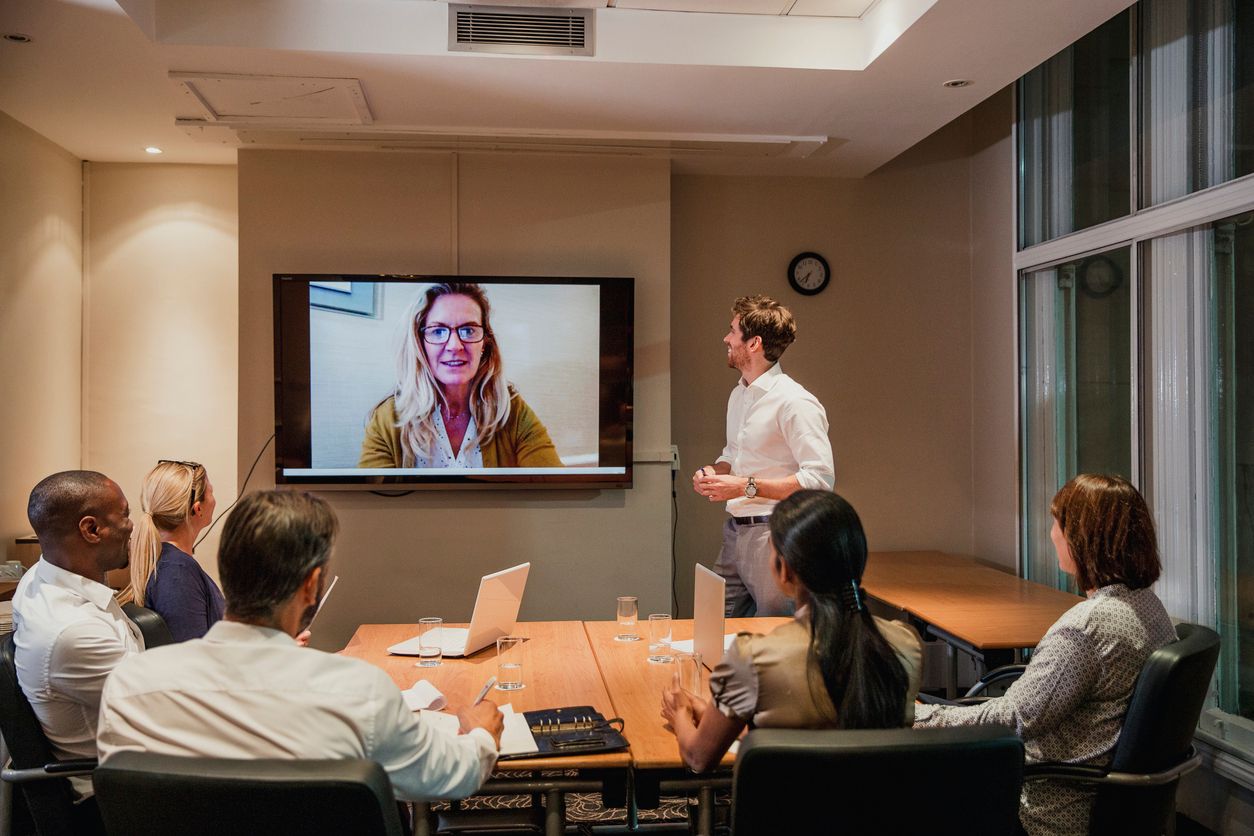Are your hiring guidelines based on outdated myths and misconceptions? Recruiting has moved into the 21st century. Isn’t it time to bring in the myth busters?
Obsolete practices could be swindling your organisation out of some stellar talent. Don’t let these 13 classic hiring myths cheat you out of your next star employee.
Myth #1: Always hire the most experienced or educated candidate
Strong work experience and a good education will get candidates in the door. It’s not enough.
Relying on these criteria alone shrinks your pool of quality candidates.
Great candidates have that all-important mix of personality, passion and potential. Will they be working with a team? Attending company events? Could your organisation afford an employee with attitude?
A candidate with less experience or education may have better interpersonal skills and a stronger work ethic. Consider training that engaging personality in the job skills they are lacking. It’s the balance of great attributes that counts.
“Skills can be taught. Character, you either have or you don’t have.” – Anthony Bourdain
One study reveals that only 11% of new hires fail due to a lack of technical skills – a whopping 81% fail due to motivation, temperament, and attitude!
Myth #2: Job hoppers should not be considered
This old fashioned fable could be costing you some of the best talent around.
Once, job hopping indicated a deep-seated problem, and job hoppers were typecast as disloyal and indecisive. Now it may simply mean that person in the hot seat is passionate, driven to succeed in a highly competitive market. The challenge is to decide what level of job hopping is acceptable.
As many as 42% of workers leave after one to two years on the job. Don’t let it put you off. Get the back story. Hiring pros understand job hoppers may be seeking new challenges or the right cultural fit.
A survey of 1000 firms found that 82% of employers would hire someone who had switched jobs in the last six months.
Myth #3: You’ll learn everything from the interview
Not necessarily.
Will you get the best candidate or the best performer? Applicants in interviews are on their best behaviour. Most have read the advice – how to act, what to do – and they’ll be well-prepared. Great performers will tell you what you want to hear. Answers could be memorised, body language rehearsed.
Underqualified candidates may present themselves well, impressing you with their experience and skills, while the best candidate can interview poorly.
Seasoned recruiters sometimes ask an off-the-wall question and watch the candidate’s reactions, or use second or informal interviews. Setting tasks or tests could also be revealing.
Myth #4: Great candidates ask a lot of questions… at the end
The best kind of interview is a give and take between candidate and interviewer. It’s a conversation.
When candidates only ask questions at the end, the natural flow of dialog is ruined, and the interview turns into an interrogation. While a Q & A at the end ties up loose ends, candidates who are actually engaged may have questions during the interview. Great candidates ask questions that show their interest in the company and the role.

Myth #5: The interview starts when they shake your hand
Not true. A candidate’s interview starts before they even walk in the door.
From the first contact, the candidate gives clues to their personality and abilities. This is especially important for sales or account roles.
How does the applicant respond to your emails and texts? How is their tone in these communications? These can be great indicators of the type of person you’ll be interviewing before they even step into your office.
When they arrive for the interview, see how they interact with the receptionist or your colleagues.
Myth #6: Hire someone with no weaknesses
No candidate is perfect.
But when faced with the ubiquitous weakness question, what do candidates do? They fall back on the worst job-seeker advice, “Never, ever admit to any weakness!”
Everyone has strengths and weaknesses. We’re human. Great candidates will demonstrate self-reflection, understanding their flaws and how to tackle them. These candidates will take constructive criticism on board and convince you their flaws make them no less of a great employee.
Tread carefully with candidates who try to twist a shortcoming into a professional strength. These people say things like “I’m a perfectionist.” Or “I’m a workaholic.”
Myth #7: The ball is in your court
Well, yes and no.
Your company does have the power to extend an offer. But an interview is a two-way street. While you want to know if they‘re right for your company, the candidate’s assessing if your company is right for them.
It’s a candidate-driven market according to 87% of recruiters. This means more available jobs than experienced, qualified job seekers to fill them. You need to be selling your organisation to the best talent. Follow up with candidates in case they’ve found another position, and, of course, treat their time as valuable too.
Move through the hiring process quickly, and great candidates will want to join your company.
Myth #8: The perfect candidate is out there
Really?
The perfect candidate is the unicorn of the recruitment world.
Don’t wait for one; they are highly unlikely to exist. Remember the saying: “The perfect is the enemy of the good”.
You’re not looking for the perfect candidate; you’re looking for the best possible fit, the right candidate for your company and the role.

Myth #9: Being late is a deal-breaker
Life happens.
It could be down to poor time management, but sometimes there is a legitimate and unavoidable reason.
What’s important is how they handle it. Did the candidate call ahead? Did they apologise and explain?
If they have a watertight reason and a good apology, great candidates could deserve a second chance.
Myth #10: Human interviews can be objective
In a parallel universe — with fairies and dragons — perhaps.
But everyday life? Not likely.
We all operate with unconscious or cognitive bias — learned stereotypes that influence our behaviour. Examples are:
- Confirmation bias
- Effective heuristic bias
- Halo effect
- “Like me” bias
- Ethnic bias
To make fair hiring decisions, interviewers must work around these biases all the time. Avoid the worst pitfalls with set questions, developed in advanced and used equally for all candidates.
Shun decisions based on subjective factors: Is this applicant confident? Is this candidate “suitable”? Relying on subjective evaluations like these leave you open to claims of discrimination.
Myth #11: Appearance is less important
Appearance counts. That first impression registers on our brains, and it’s impossible to delete.
No one expects the candidate to turn up in a three-piece suit (unless for a corporate, fashion or client-facing role), but he or she should fit the tone of your office.
Personal appearance is a major factor, with 73% of recruiters saying it helps influence a positive first impression.
When a candidate appears clean, neat and well put together, they gain credibility. This is someone who wants to make a good impression, someone who respects the interview process – and the company.
Myth #12: Hiding the salary is advantageous
Not if you want to attract the top candidates.
Often, businesses think divulging salary information puts them at a disadvantage. It makes negotiating an offer tricky. “Competitive” or “negotiable” won’t cut it. At the very least, provide a salary range that gives you some leeway.
Leave out salary information, and you risk the candidate withdrawing from the hiring process later, wasting both their time and yours.
Myth #13: Candidate references are a waste of time
References are going to be carefully selected by the candidate. But job candidates don’t only solicit references from those who will say positive things about them.
Statistics show that 83% of all reference providers offer narrative comments on a candidate’s areas for improvement. Checking references gives you third-party comments on their experience and skills and confirms employment dates, job titles, qualifications and salary.
Guarantee reference providers’ feedback will remain confidential, and then focus on your one-on-one interactions during the interview.
The moral of the story?
Bring your recruiting practices up to date. Lose the hiring myths. Don’t allow antiquated stereotypes and dated beliefs to cheat you out of the best and brightest talent out there



![How to Hire a Remote Software Developer [ Step-by-Step Guide ]](/content/images/2022/04/iStock-1163541557.jpg)
![9 Zoom Interview Questions to Ask Software Engineers [ Recruiter´s Guide ]](/content/images/2022/04/iStock-1319790212.jpg)
![What is the Average Software Developer Salary? [ For Startups ]](/content/images/2022/03/iStock-1017296544.jpg)
